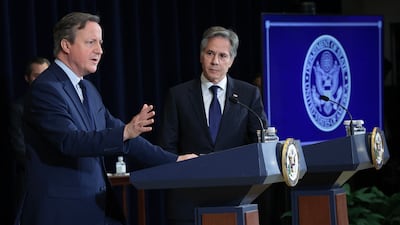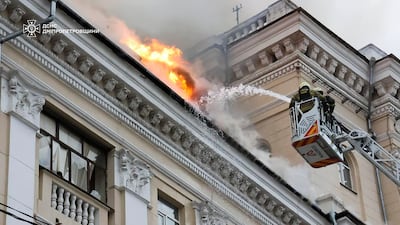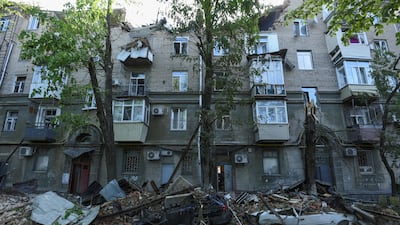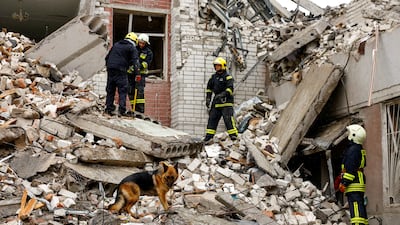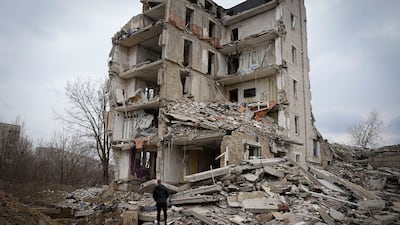Could the Royal Danish Embassy on Sloane Street in central London be the inspiration for a new way for the UK to deal with the world, as it seeks to revamp its international profile? I was prompted into this thought by reading The World in 2040, a publication that last week sought to define the terms of a fresh departure in British diplomacy.
Published under the auspices of University College London and written by a former head of the civil service as well ex-diplomats Tom Fletcher and Moazzam Malik, its theme is freshening up the UK as an offshore island that can play an effective international role.
I thought of the slate-grey Danish embassy because it is so physically different from the elegant town houses that tend to serve as embassies in Belgravia and other districts in the capital. The box-shaped modernist bloc is sat on a busy shopping street projecting into daily life in the capital.
One of the points made by the authors of the diplomacy report is that the UK’s Foreign Office is physically hidebound.
The exact name – Foreign, Commonwealth and Development Office – was insufficiently different from the use of the word Colonial before. Though the Commonwealth/Colonial name change happened outside the careers of all the authors, they clearly feel that the historical overhang has not been sufficiently dealt with.

The sweeping staircases and commonplace nomenclature within the Foreign Office also come in for criticism, presumably serving as inhibitors of engagement. The central quadrangle of the Foreign Office building is, for example, known as the Durbar Court, a term of imperial resonance.
In truth, the Foreign Office is grand but then so too are many buildings. Some of the intricacies of the mosaic tiles on the floor would compete in beauty with Milan shopping arcades. But there are many who would argue that what really matters in diplomacy is spirit and the energy to engage in effective initiatives.
When David Cameron, the former prime minister and now overlord of the Foreign Office, drew viral attention to his latest push for Ukraine funding and support, he was far from its archways. A video shot as he left the office bloc that hosted the 75th anniversary celebrations for Nato was praised as highly effective government communications.
Mr Cameron declared that he was going to the US to see Speaker Mike Johnson in a bid to cajole American politicians into releasing tens of billions of dollars in military and other support for Ukraine’s war effort. In the event, Mr Johnson could not bring himself to engage face-to-face, but Mr Cameron secured a dinner with former US president Donald Trump, the presumptive Republican nominee for the White House this year.
In Washington, too, Mr Cameron secured valuable airtime to talk over the heads of Congress to press his case for ending the logjam placed by the politicking on support for Ukraine.
George Osborne, the former UK chancellor of the exchequer and a close ally of Mr Cameron, said it was an impressive display of the importance of the high profile and access enjoyed by his former boss.
He said that the country’s diplomatic clout had been upgraded on the world stage because Mr Cameron was acting like the British prime minister to get attention that “no normal British foreign secretary” would have pulled in. “There’s no way that James Cleverly, or Liz Truss before him when she was foreign secretary, would have had dinner with Donald Trump at Mar-a-Lago,” he added.
The report’s authors would no doubt argue that Mr Cameron is a one-off appointment, and that his personality is unique. One of them, Mr Fletcher, after all worked as foreign affairs private secretary for Mr Cameron in the early days of the latter’s time in No 10 Downing Street (Mr Fletcher also served under former prime ministers Tony Blair and Gordon Brown).
With Labour polling well ahead of this year’s general election, the book also examines the foundations of what a progressive foreign policy under the centre-left party would look like. That’s where the work of this report is somewhat overlooked in a backlash about throwing shade on the grandeur of the Foreign Office’s old-fashioned inclinations.
It uses metrics to depict the UK as one of the bigger mid-sized powers, showing that factors such as international trade and migration levels are more important to this group of countries. It makes several important points, including that the UK cannot just brush aside resentments over its colonial past. It also calls for the Foreign Office to be replaced by an International Affairs ministry, and wants the UK to reallocate resources between diplomacy, development and defence.
Mark Sedwill, the former head of the civil service, was a proponent of “fusion” between these spheres along thematic lines when he was a rising star. The reports suggests that instead of setting a target for development spending, there should be a 1 per cent allocation of national wealth to the overall task of “international engagement”.
What we can see in the report is programmatic – even as Mr Cameron is demonstrating the importance of purpose and spirit.
One former UK ambassador recently recalled accompanying a young and newly appointed predecessor of Mr Cameron to a meeting in a Middle East palace. Remember, he told his youthful boss, it’s not about you. What the King is doing in there is meeting the British Foreign Secretary and that still means something.
